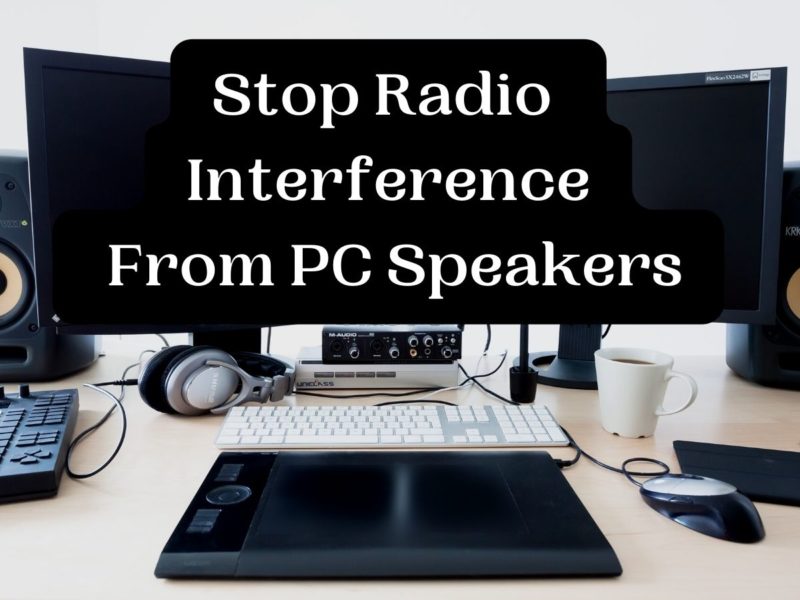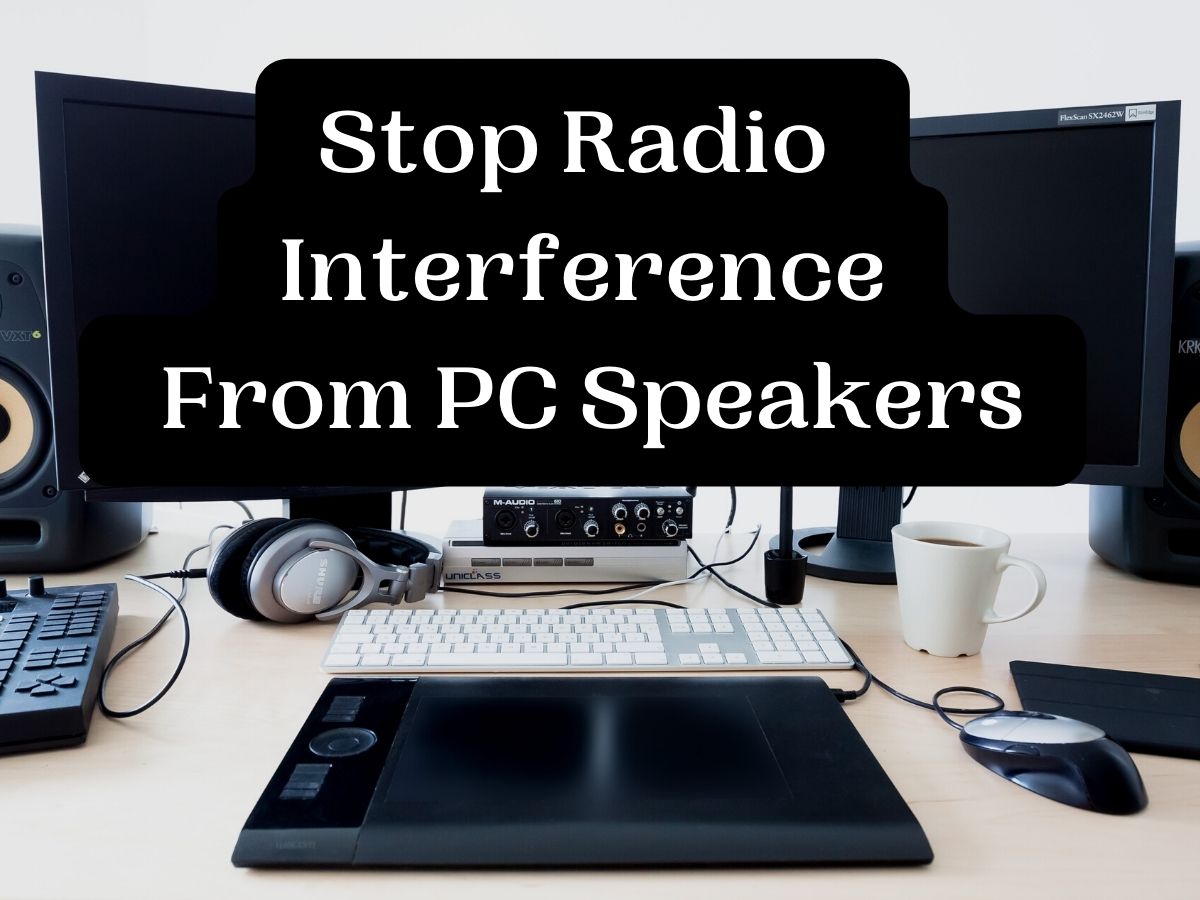You’ve just set up a home computer and want to enjoy some music, but it seems that your PC speakers are working against you. You have interference from the Internet, the TV, other electronics in your office, and even from radios. This can be frustrating because it can make your music sound choppy or muffled. Luckily, there are several options available for you to fix this problem. In this post, we’ll teach you how to stop radio interference from PC speakers with just a few simple steps!

Here is a list of ways to reduce or eliminate interference from speakers:
- Check the cables
- Check the viruses on your computer
- Turn off the computer when not using it
- Contact your transmitter or technical support
- Report to FCC
What Is Radio Interference, and What Causes It?
Radio interference is when two or more frequencies are close to each other and interfere with the communication signals. It can occur at any point on the electromagnetic spectrum, from radio waves to high-frequency light waves, and at any frequency of operation of the equipment, such as FM and AM broadcasting, radar systems, satellite communications systems, or even microwave ovens.
What Is the Difference Between PC Speakers and Headphones?
The speakers are the same as headphones in that they can be used for both music and voice calls. They have a microphone and an audio signal is sent to the speakers. A speaker has a built-in amplifier and loudspeaker system.
What Are Some Common Reasons for Radio Interference in a PC Speaker?
A common problem with PC speakers is that they can interfere with other audio devices. This interference is caused by the way the speaker’s subwoofer is mounted on the computer tower.
Radio interference can also be caused by electromagnetic waves. These waves can be from the outside or computer speakers picking up radio signals and then generating audio content.
A third way that interference can happen is by electrical resistance in the earphones. This type of interference is normally not harmful to human health and does not affect the quality of audio output. However, if this type of interference occurs when you are listening to music or watching movies, it may damage your ears and eventually cause hearing loss.
6 Easy Steps to Stop Radio Interference From PC Speakers
There are some ways you can stop interference on speakers.
Step 1: Check your cables
First, make sure that the audio cable connected to your speakers is plugged into the correct input on your PC.
Second, check the wires. Loose wires can create interference. If they are loose, replace the complete cable. Replacement cables may be purchased at a rather low cost.
For further information, watch this video on Youtube:
Step 2: Disconnecting and reconnecting the cable to see if that fixes the issue.
If you’re using a wireless mouse or keyboard, try connecting them with a USB port instead of Bluetooth or Wi-Fi connection and see if that fixes the problem.
Step 3: Check the viruses
Many users have experienced computer infections that caused their speakers to sound like a radio. This is something that no one anticipates. You probably have a computer infection if there is still radio interference after you remove the audio wire from your laptop and computer and unhook the power cord. In this case, consult a technician to fix the computer infection.
Step 4: Turn off the PC speakers when no one is using them or use a headset when using them.
Radio interference can be caused by many different factors, such as loud music, computer speakers, and even the TV in your office. The most common methods to prevent radio interference in speakers are to turn off the PC speakers when there is no one using them or use a headset when using them.
Step 5: If none of these options work, contact your technical support to solve this problem.
To get to this point, you must have exhausted all other options, and the problem persists so you need to get in touch with the transmission’s owner and report the interference.
It’s conceivable that their radio station’s equipment is broken, but if that’s the case, they’ll know how to fix it.
Step 6: Report to The Federal Communications Commission (FCC)
The Federal Communications Commission should be contacted if the radio station’s equipment is to blame, but the owner refuses to cooperate.
These kinds of scenarios necessitate assistance from the FCC. However, before contacting the FCC, you must give the above methods a try. Assure yourself that you gave it your all, but the effort was in vain.
FAQs
What is the difference between stopping radio interference and blocking radio signals?
Radio signals are a type of electromagnetic radiation used for communication. They can be broadcasted on wireless networks and received by radio receivers.
There are two types of radio interference:
– Stops: Interference that completely blocks or disrupts the signal, such as a dead spot in the signal area.
– Blocks: Interference that reduces or hides the strength of the signal, such as interference from another transmitter nearby.
How does an audio engineering company solve the issue of radio interference?
Audio interference is a common problem that many radio stations face. This has become more prevalent with Wi-Fi, Bluetooth, and other wireless technologies.
To solve this, audio engineering companies use noise-canceling technology to filter out the noise from the airwaves. This technology is also helpful for many other industries, such as aerospace and automotive.
Noise-canceling technology is a great solution for radio station owners because it allows them to transmit their content without interference from anything else in their environment.
How can I identify a speaker that has caused radio interference?
There are many ways to identify a speaker that has caused radio interference. One way is to use a spectrum analyzer.
Another way is to use the signal strength meter on your radio. It will show you how strong the signal of the interfering source is and how much it’s interfering with your station’s signal.
There are also other things that you can do, like checking for any feedback on your radio or calling in and asking someone else if they have any problems with their radio.
Conclusion
Hopefully, you’ve learned how to stop radio interference from PC speakers after reading this post. All you need to do is follow the instructions above.
Please leave a comment if you have any suggestions. It has been a pleasure having you here today. Thanks for reading
